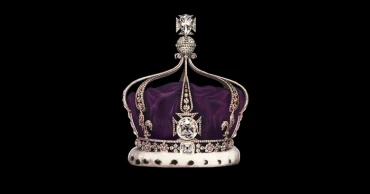colonial era
India shaping up campaign to reclaim historical artefacts looted in colonial era, UK media reports
Indian Prime Minister Narendra Modi and other diplomats are reportedly gearing up for a campaign later this year to reclaim items in British museums and held by the royal family, The Guardian reports citing the Daily Telegraph.
The items include the controversial Koh-i-noor diamond, which is held by the royal family and has featured in discussions about its potential use in the coronation; the treasures of Tipu Sultan, which are in the Victoria and Albert Museum and Powis Castle; and the Amaravati Marbles.
India’s actions are part of a larger reconsideration of its former colonial status. Modi has encouraged school classes to be taught in Hindi and other languages rather than English, India's parliament is being rebuilt and its MPs are preparing to move out of the Edwin Lutyens-designed colonial era building, and roadways named after former British monarchs have been renamed, according to the report.
Read more: Now that the Queen is dead, will India get Kohinoor back?
Meanwhile, The Telegraph quoted Govind Mohan, secretary for the Indian ministry of culture, saying returning antiquities is going to be a key part of future policy. “It is of huge importance to the government,” he said. “The thrust of this effort to repatriate India’s artefacts comes from the personal commitment of the prime minister, Narendra Modi, who has made it a major priority.”
The issue has previously received attention alongside disputes that include the potential return of the Elgin marbles to Greece.
Former Conservative prime ministers and culture secretaries have rebuffed requests for the return of artefacts. During his 2013 visit to India, David Cameron stated that the return of the Koh-i-noor was not the “right approach,” according to The Guardian.
The report also quoted a leading author on the British empire regarding the issue.
Read more: National Museum to send proposal for including palm leaf scroll etching as UNESCO cultural heritage: KM Khalid
Sathnam Sanghera, who authored “Empireland: How Imperialism Has Shaped Modern Britain”, believes the Indian jewels and other historical artefacts looted during the British colonial era will be returned “inevitably.”
He said the latest demands are part of a series by former colonies reassessing their own time under the empire.
Sanghera said, “Our museums and the royal family are in possession of billions of pounds worth of Indian loot. It was a systematic part of colonial rule. The royal family was given the king’s share of that loot. When we annexed parts of India and Burma [now Myanmar], there were representatives of our museums there to take things, soldiers took loot and sold it, too.
“It’s not just the financial value of these items, there is also the emotional and religious value.
Read more: French honour for Nadia Samdani: Receives Knight of the Order of Arts and Letters medal
“These countries are future superpowers or superpowers already, they are not going to shut up about it,” the writer told The Guardian.
On the issue of returning Koh-i-noor, Sanghera agrees that the item is controversial in its own right, with multiple claims on its ownership.
“I think it is impossible. There will be anger by the Sikhs if the Hindu nationals get it. It is unsolvable,” he said.
Museums are constrained by law to keep their collections intact. However, charities such as the National Trust who are not subject to the same legal restrictions may be approached first.
Read more: Tracing the Roots of Ekushey Boi Mela
Sanghera said, “In the next 10 years, it will totally change. Young people in Britain feel the same way about loot in museums as we felt about animals in zoos. They can’t quite believe it is allowed. I think it is inevitable.”
Countries such as India are altering historical legacies of colonial rule, which ended in 1947, and an official tour of the Caribbean by the Prince and Princess of Wales in 2022 was marked by demands for slavery reparations from the days of the British empire.
2 years ago

